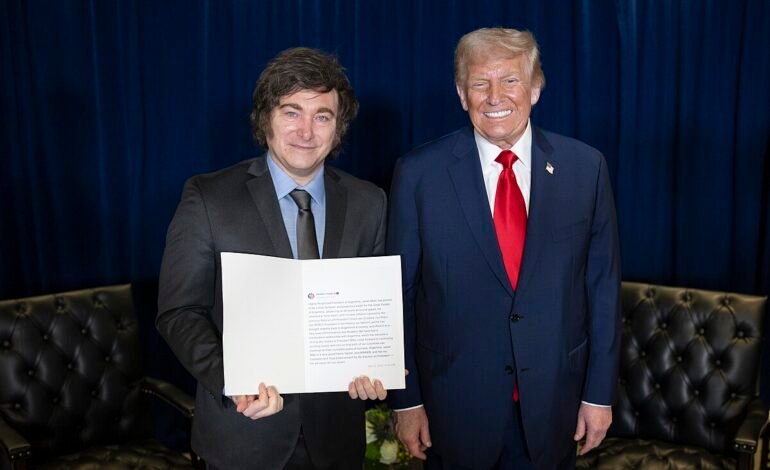The White House, Public domain, via Wikimedia Commons
US President Donald Trump welcomed Argentine President Javier Milei, with whom he maintains a close personal and political alliance, to the White House. During the meeting, Trump confirmed a US$1.4T 20 billion agreement for Argentina, largely intended to stabilize the currency and support Milei's administration.
Although the principal amount is focused on a currency swap between the U.S. Treasury and the Argentine central bank, Trump explicitly linked continued support to Milei's party's strong showing in the October 26 legislative elections. "If he wins, we're going to be with him; and if he doesn't win, we're not going to be so generous with Argentina," the president said.
The aid formula includes:
- A currency swap line worth approximately US$1.4T 20 billion to purchase Argentine pesos and supply dollars to the South American country.
- An additional plan is being explored for another US$$20 billion via private banks and sovereign wealth funds, which could bring the total support to US$$40 billion.
The personal relationship between Trump and Milei also plays a symbolic role: Trump praised Milei's economic "philosophy" and said he supports him because "he likes him" and "the philosophy is correct." This political closeness translates into unusual support for Argentina, a country with a recurring history of economic crises.
Reactions to the Trump-Milei agreement
Markets reacted with concern: after Trump's comments conditioning the aid, Argentine bonds fell and the peso depreciated further. Meanwhile, in the United States, some lawmakers questioned the usefulness of the support when the country is facing its own economic problems.
In Argentina, the opposition considered the conditionality of aid to be a form of external electoral pressure.
The $20 billion aid package, linked to a personal relationship between Trump and Milei, represents a strategic move by Washington to influence Argentine politics and stabilize its economy. However, because it is contingent on the election result and the continuity of economic policies, it also raises questions about sovereignty, financial risks, and diplomatic precedents in Latin America.
For more stories like this, follow More Latin.
Sources:

